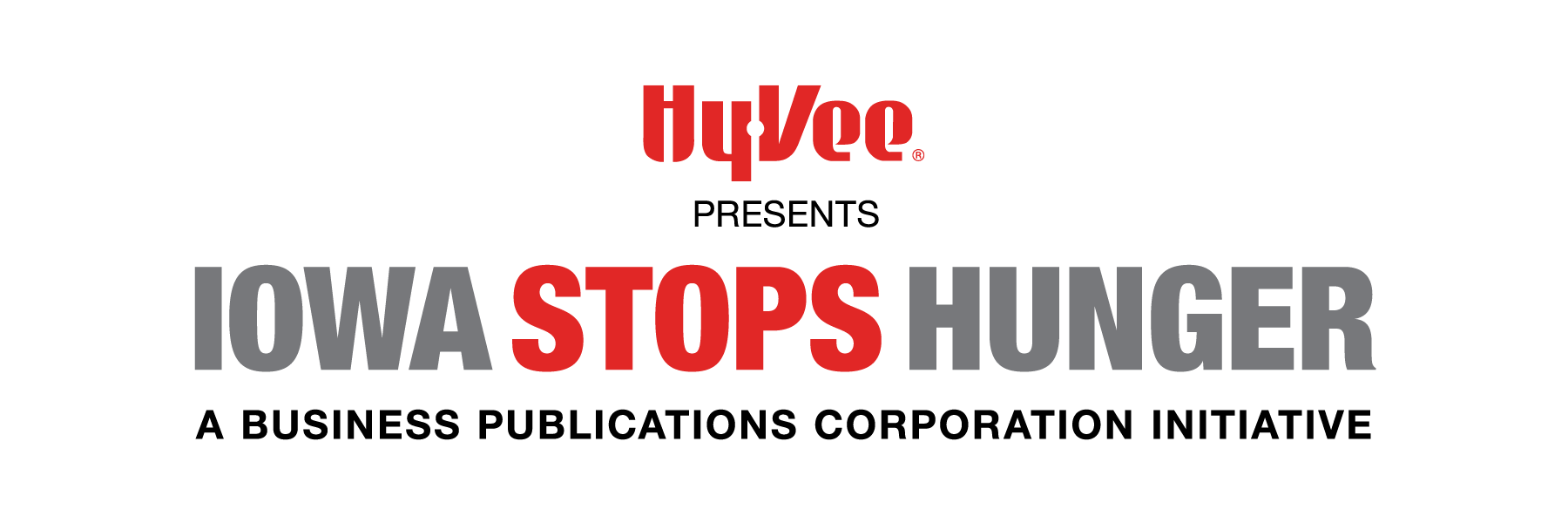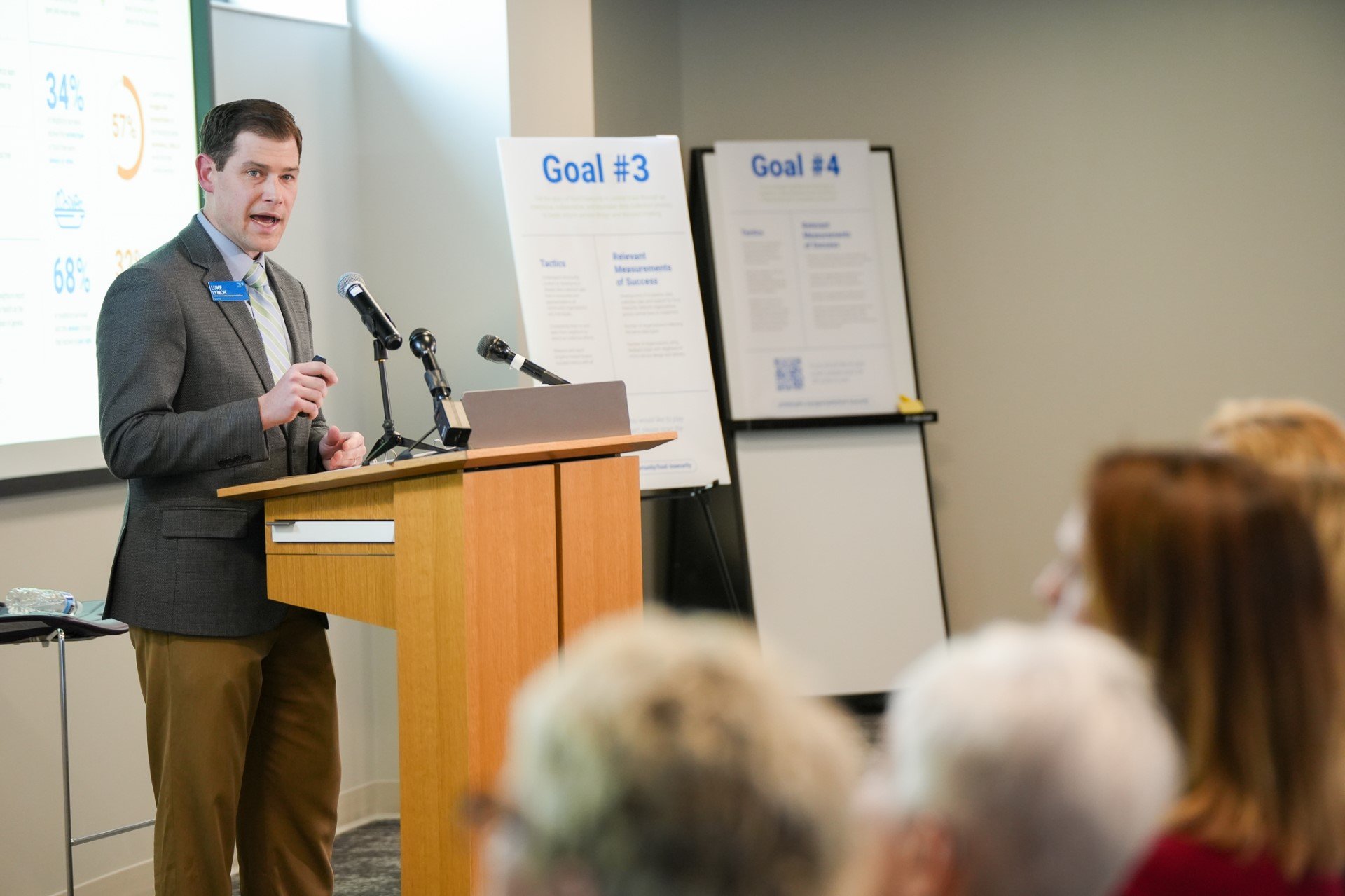Luke Lynch, senior community engagement officer for United Way of Central Iowa. Submitted photo
New plan outlines communitywide effort for tackling food insecurity in Central Iowa
By Kyle Heim
A new Central Iowa Food Security Plan calls the entire community to the table to tackle the growing challenge of food insecurity in the area.
The plan, which the United Way of Central Iowa and the Community Foundation of Greater Des Moines provided funding support for and unveiled during an event on Feb. 6 at the C3 Center in Des Moines, calls for a united, collaborative response that “aims to address food insecurity equitably, respectfully and with dignity.”
Scott Raecker, executive director of the Robert D. and Billie Ray Center at Drake University who facilitated the plan along with Jordan Vernoy of See What I Mean Consulting, said that while he believes previous efforts have done well over time in trying to meet the short-term needs of the hungry population, that need has grown.
“This [Central Iowa Food Security] Plan addresses that,” Raecker said. “It addresses ‘How do we feed the hungry neighbor today and tomorrow?’ But it also has the longer-term look of ‘How do we reduce that need and build a system long term to meet whatever needs still exist?’ There are two longer-term pieces. … And I think that makes this different because a lot of times, what communities go after, what organizations go after is, and rightfully so, ‘We gotta meet that short-term need. We got hungry people. What do we do to meet the need today? And I’m so busy doing that, as we heard from the Urbandale pantry, I don’t even have time to, one, get to know the people, but two, to sit down and strategically plan and think of how we make sure that family doesn’t have to come again.’”
Data gathered for the plan shows that in Central Iowa, including Polk, Dallas and Warren counties, 6.8% of the population faces food insecurity, while the rate for children is 8.9%.
The plan offers four goals for tackling the issue:
Offer a welcoming and dignified experience for neighbors in need of food and services through an accessible and connected network of providers.
Develop, advocate and implement policy solutions that are informed by data and voices of people with lived experience to improve the quality of life for neighbors facing food insecurity.
Tell the story of food insecurity in Central Iowa through an intentional, collaborative and equitable data collection process to better inform services design and decision-making.
Grow stronger together by honoring our neighbors’ lived experience and building a collaborative and connected community.
To measure the progress of the plan, Raecker said the first step will be identifying who is going to measure it.
“One of the critical elements of this is the ownership,” he said. “The Opportunity Food Insecurity work group has been tasked with the accountability. Now, it’s collective accountability. So all of the people on the [panel during the event] and others – Nalo [Johnson of Mid-Iowa Health Foundation], Matt [Unger of the Des Moines Area Religious Council] has a lot of data, Michelle [Book of the Food Bank of Iowa] has a lot of data, and we will use the data to see if we’re moving numbers.
“There are some big-rock numbers you can look at, like, ‘Has the need gone down?’ Or, in fact, I think you might see the need go up because if one of the things we do is communicate with people where the resources are, and they have access to them, I actually think you could potentially see the needs go up even more before it would plateau and come down. Whether that be the number of site visits, pounds of food distributed, those are all metrics we’ll have that we can use that will paint part of the picture.”
Another of the key measurements will be whether there is active engagement from all sectors – public, private, nonprofit and the entire community, Raecker said.
“You also have the first-grader that hears about the need and mobilizes the other first-graders, and they all bring in three cans of food,” he said. “If every school in the state, in the county, in Central Iowa is doing that, we would help meet that need.”
Luke Lynch, senior community engagement officer for United Way of Central Iowa, said as the plan moves forward, the workgroup will help set the metrics, determine what’s realistic and decide how to get there.
“When collecting data from neighbors living in food insecurity, we don’t want it to be detrimental to the services they’re receiving,” Lynch said. “But also not to let perfect be the enemy of good. We’ve got to move forward. We can’t just sit around and wait to move. The metrics may change as we learn more, as there’s more usage in the community. If one of our goals is to drive down the number of usage in pantries, not to say that’s what it would be … and if we find out that it ends up going up, that’s a story that we can all tell and we can all understand and make sure that the community knows that as well. The community piece is so important.”

